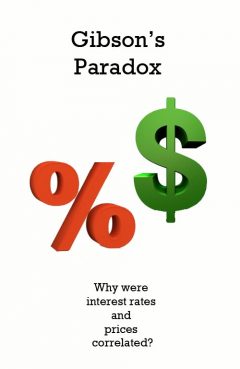Gibson's Paradox

Release Date: //
Country of Release:
Length:
MPAA:
Medium: Paradox
Genre:
Release Message: Why were interest rates and prices correlated? Authored by Alfred Herbert Gibson.
Description: Gibson's Paradox is the observation that the rate of interest and the general level of prices are positively correlated.[1] It is named for British economist Alfred Herbert Gibson who noted the correlation in a 1923 article for Banker's Magazine. The correlation had been noted earlier by Thomas Tooke.[2] The term was first used by John Maynard Keynes, in his 1930 work, A Treatise on Money.[3] It was believed to be a paradox because most economic theorists predicted that the correlation would be negative. Keynes commented that the observed correlation was "one of the most completely established empirical facts in the whole field of quantitative economics."